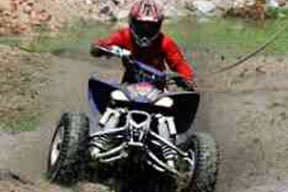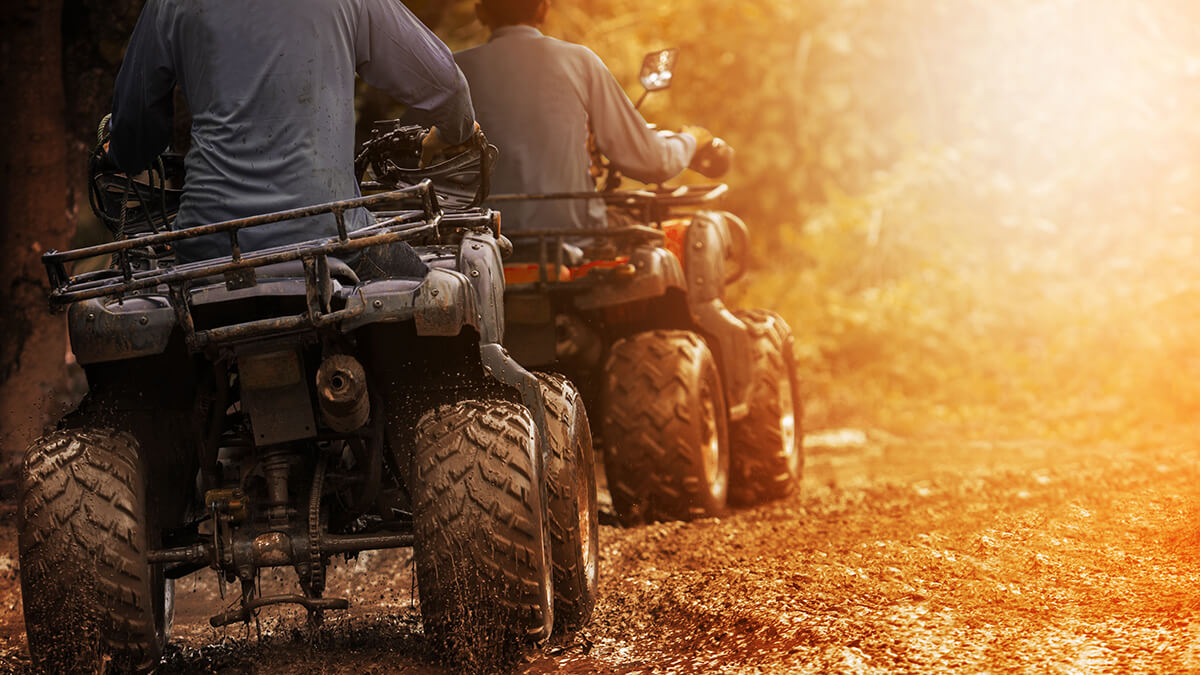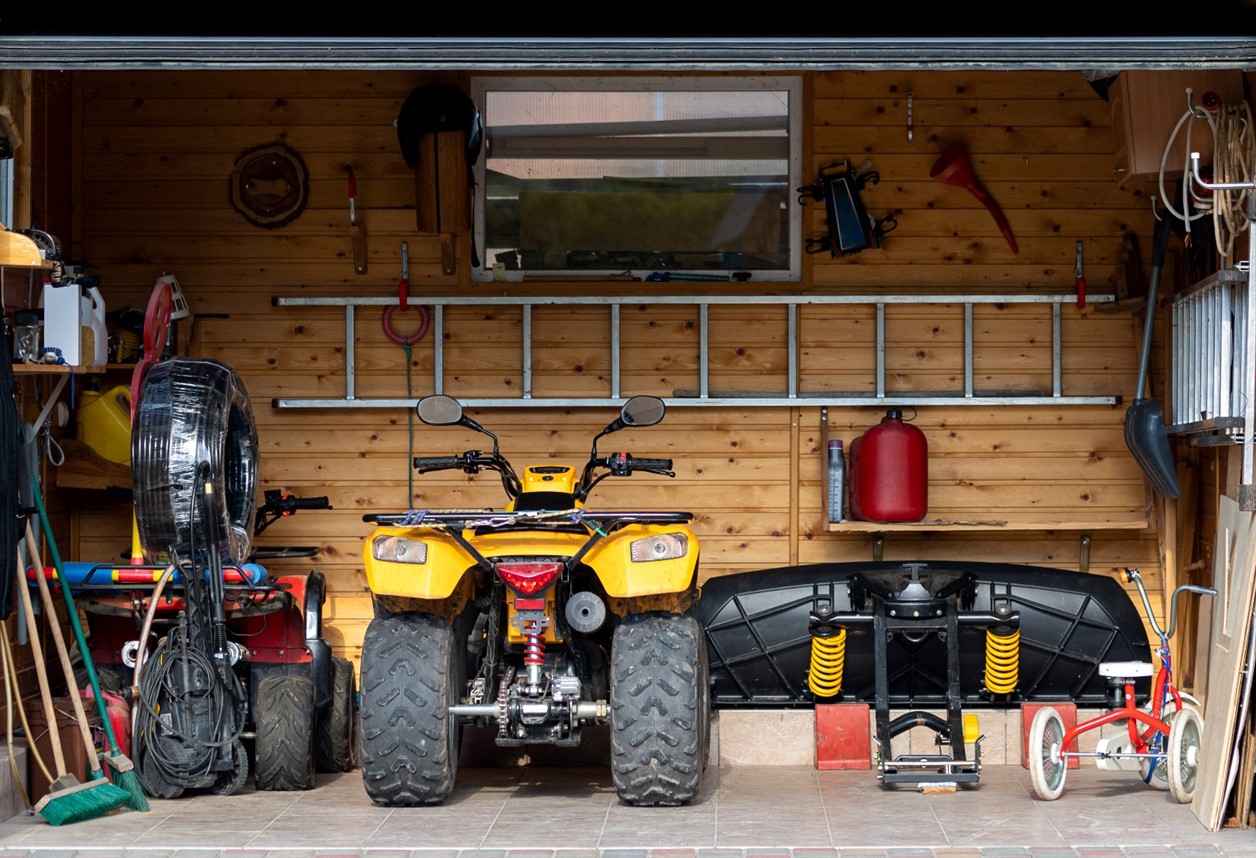UTV safety before you ride
Off-road vehicles are a thrill, but they can be dangerous if you don't know how to properly ride them. Did you know, according to the Consumer Product Safety Commission, there were almost 94,000 off-road vehicle injuries treated in the emergency room in 2017? That's why it's important to understand the dangers and take safety precautions before riding.
Off-road vehicles refer to many different machines, including: ATVs, dirt bikes, 4-wheel drive trucks, SUVs, and UTVs. In this article, we'll focus on UTV safety. They're utility-terrain vehicles, utility-task vehicles or side-by-sides. They look like a cross between an ATV and a Jeep, but trust me, they don't drive like either one. Before you take one for a ride, remember these safety tips:
-
Don't Drink and Drive
No matter what, never drink and drive. We've all heard this many times, but drinking severely impairs your reaction time and judgment. Drugs can also have this effect on your driving. Stay in control, and avoid putting yourself or anyone else in danger.
-
Understand the Vehicle
It may sound boring, but read the operator's manual. It's best to keep it in the vehicle at all times as a reference tool. Another way to familiarize yourself with the UTV is reading the warning labels. They're there to point out potential dangers and how to avoid them.
-
Do a Pre-Ride Check
Check the tires before you head out. No one wants a flat tire! Also, check your fuel level so you know when you will have to fill up again. Do a quick walk around the vehicle and look for anything that may be wrong. This step can prevent a break down - you'll be thankful you did it.
-
Wear Safety Gear
Always wear over-the-ankle boots, long pants, a long-sleeved shirt, gloves, a certified helmet and goggles if your helmet doesn't have any eye protection. Wearing a protective suit is also something you should consider; it's optional, but an important precaution, especially if you're riding alone.
-
Wear Seat Belts
Even if you aren't driving far, everyone in the UTV needs to wear a seat belt. Many states require this. A lot of UTV accidents are roll overs, and in some incidents, people have been ejected from their seats.
-
Practice Driving
Practice, practice, practice! The first time you drive a UTV you will probably want to go fast, but I highly recommend taking it slow. Practice going a safe speed, taking corners and adjusting to the way it rides on trails. If the driver is a young teen, be sure they have supervision.
-
Remember Passenger Safety
Never carry more passengers than the UTV is designed for, and make sure they keep their limbs inside the vehicle at all times. There should be handle bars for passengers to hold on to - if a passenger is unable to reach the handles, then they should not be riding. Once all of the passengers are in, make sure the doors are secured and locked shut.
-
Stay on the Trail
Stay on the trail to help prevent collisions. Tires on most off-road vehicles are meant to stay, well…off the road. They aren't made for paved roads, and therefore, they will handle differently. If you have to cross a public road at all, double check for cars both ways and proceed with caution.
-
Ride Smart
It's best not to ride alone for many reasons, such as breaking down or getting hurt. If you are riding alone, take extra caution and be prepared. When you ride you should be alert and observant. There may be other riders that aren't experienced and forget to check their surroundings. Also, do not attempt maneuvers that could be risky - know your limits!
-
Take a Safety Course
The best advice to give any UTV rider is to take a safety course! Most people learn better hands-on, but there are also online courses available. Anyone younger than the age of 16 must complete a safety course before driving in most states.
Lastly, if you own a UTV, here's one more important tip to keep in mind. Before you let someone else drive your UTV, help them understand these safety tips and why they're important. Make sure they know the differences in driving an on-road vehicle and an off-road vehicle. Ride safe!
Looking for UTV/ATV insurance? Get a quote with Foremost® Insurance today!





